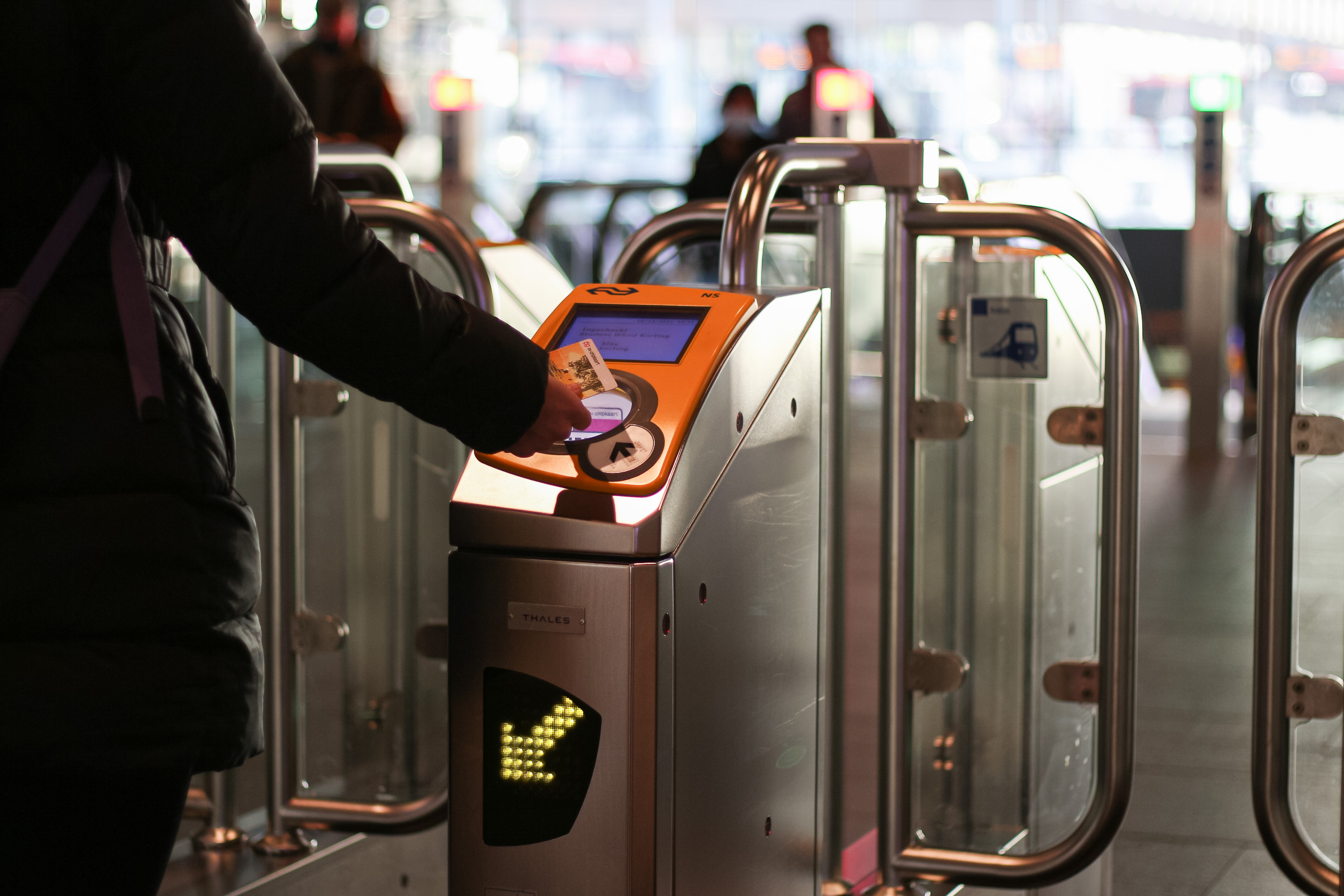Students will soon be able to check in on public transport with their bank card or mobile phone. Consequently, some students will run more risk of public transport fines.
After graduation, students must actively remove the student travel entitlement or risk high fines. (Photo: Justyna Botor)
It is taking somewhat longer than expected, but travellers will soon be able to check in differently on trains, buses and trams. Students will then no longer have any hassle with activating their ‘travel entitlement’ on their public transport chip card (and removing it) at a ticket machine.
For years, students and ex-students have paid many millions of euros in fines because they cancelled their student travel entitlement too late. They had to pay even if they had not travelled. The transport companies lobbied to maintain that and to raise the fines.
52.6 million euros
In 2014 students paid a record amount of 52.6 million euros in fines between them. This provoked opposition among political parties. Thanks to better provision of information, milder legislation and a technical patch (blacklisting), the amount shrank to 5 million euros in 2021.
But students still have to remove the travel entitlement from their chip card at a ticket machine. There is still no means of stopping the travel entitlement automatically once it has expired.
The minister sees no reason for leniency
It is expected that the system will be improved in the course of next year and Education Minister Robbert Dijkgraaf is going to amend the law to allow students to benefit from it. The House of Representatives welcomes these changes, but is also asking critical questions.
Transition
There will be a transitional period during which some students will travel using the old system and others will use the new system. So some will have to remove the travel entitlement from their chip card when it expires, while for others that will happen automatically.
GroenLinks foresees confusion. “Is it possible during the transitional period to be more lenient towards students who are using an old public transport chip card and who forget to cancel it, thereby incurring a fine?”, the party asked Dijkgraaf.
No, was the reply. The minister sees no reason for leniency. The situation will not have changed for students using the old system, he argues, and leniency could result in students deliberately continuing to use their card when they are no longer entitled to do so. “I don’t consider that desirable”, said Dijkgraaf.
So under the old system students could still easily incur a fine, but not under the new system. Given the technical problems, the transitional period might last longer than 1 January 2024, the target date of the transport companies.
Retroactive
In fact, fines will not be completely eliminated, even under the new system. It is still possible for someone to make use of the student travel entitlement who is not actually entitled to do so. For instance, someone who has applied for student financing (and therefore a travel entitlement) but who has never started a study programme. That would come to light only if a check is made.
Additionally, students at certain institutions graduate retroactively. The benefit of that is that they can get their tuition fees back for the months after they stopped studying. The disadvantage, on the other hand, is that they no longer have a travel entitlement – also retroactively.
If it can be demonstrated that a public transport fine is the result of slow administration at the educational institution, the Education Executive Agency can get the fine remitted, says Dijkgraaf. He is not willing to tinker with the rules for de-registration, so that students do not have to pay too much in tuition fees. After all, that too saves them a couple of million euros.
HOP, Bas Belleman | Translation: Taalcentrum-VU.
Do you have a question or comment about this article?
redactie@hogeronderwijspersbureau.nl


Comments are closed.